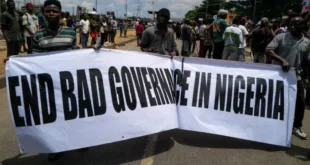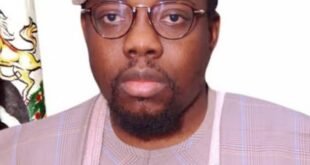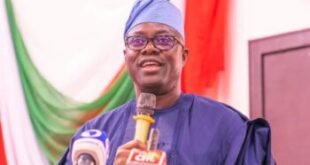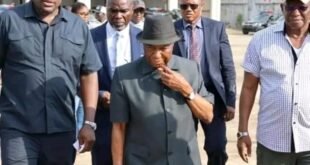The recent decision of the local government area of Bariga (LGA) in the state of Lagos to rename different paths, an act well within its constitutional authority, has turned on an online storm fired with suspicion, emotional explosions and, unfortunately, ethnic shades fueled by political manipulation. Some have accused the move of targeting the community of Igbo, framing it as another example of Yoruba’s marginalization.
However, a more attentive look at the roads involved reveals that most of the renamed roads brought Yoruba names, not the Igbo ones. For example, Ilaje Street was renamed King Sunny Ade Street; Ayodele Street became Tony Tuy Street; And Ifeanyi Street was renamed Ablere Akande Street. Far from an anti-invigoic agenda, the redenomination seems to be part of a local initiative to honor prominent figures and simplify road identity. In essence, the local government was simply doing its job.
Now compare this with what happened to Awka South LGA of the State of Anambra, where Abakaliki Street has been renamed Club Road. The change was resisted by the government of the state of Ebonyi, but the wider audience of Igbo, including many of those who now feed the ethnic sentiment, remained silent. That change came and went silent: no online insulting, no accusation of tribal prejudice and certainly no trendy hashtags. So why is an administrative exercise similar to Lagos suddenly described as an ethnic assault?
It is important to remember that the denomination and the redenomination of the road are a constitutional function of local governments. Throughout Nigeria, this practice is common and often conducted for legitimate reasons: urban planning, honoring significant citizens or improving administrative functions such as the verification of addresses and the collection of taxes. In many cases, the revenues generated internally (IGR) also increases, which is crucial for local development.
We cannot continue to interpret every action undertaken by a non -Igbo government through an ethnic lens. Not all administrative decisions made outside the South-East are an attack on the illegal. When we fall into this trap, we lose sight of more urgent issues, real existential threats that require our collective attention.
Like Ndi Igbo, we must look at each other. The names of the roads will not destroy us, but our silence could. The real problem does not concern the redenomination of the roads. Our greatest threats are not external; They are internal and are urgent. Among these: the Igbo epidemic that kills the Igbo colleague in the name of the agitation; The imposition of violent home orders that have transformed vibrant community into the ghost city and paralyzed local economies; And the silent of dissenting voices by those who claim to fight for our liberation but are, in fact, aggravating our suffering.
Those who have not been able to condemn the causes of the root of insecurity in the south-east, those who distract the gaze while the criminal elements, under the remains of agitation, transformed into terrorists, should not be the noisiest rumors that cry for the restoration of the roads of Lagos. For years, you have seen the burnt communities, while innocent people were massacred, kidnapped or hunted by their homes. You have chosen the silence on the truth, the fear for responsibility. To start the alarm for the redenomination of a road in Bariga is not the leadership, it is betrayal.
These are the existential threats that have to face ndi igbo: insecurity, disunity, economic decline and political marginalization from the inside, not of road renaising in Lagos.
The real danger is only a LGA led by Yoruba has renamed a road. The real danger is that some of us are too fast to arm the ethnic identity for the political mileage economic mileage, ignoring the dysfunction and the pain they eat from the inside.
What we need now is not outrage, but introspection. Not conspiracy theories, but clarity. Not tribal feeling, but leadership.
This is not a Yoruba problem against Igbo. It is a cynical game played by political actors who have nothing else to offer if not division and fear. We must refuse to be their pawns.
If we take the survival, dignity and progress of Igbo seriously, we must urgently: to claim our public spaces from violence and fear. Involve the parties concerned for significant reconciliation and the efforts to build peace. Request responsibility from our leaders and institutions. Promote the open dialogue on our future within Nigeria, rooted in strategic thought, not in the emotional reaction.
We don’t waste energy where there is no war. The real battle does not concern the names on road signals. It is a question of claiming our future.
 JamzNG Latest News, Gist, Entertainment in Nigeria
JamzNG Latest News, Gist, Entertainment in Nigeria









